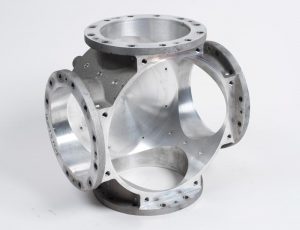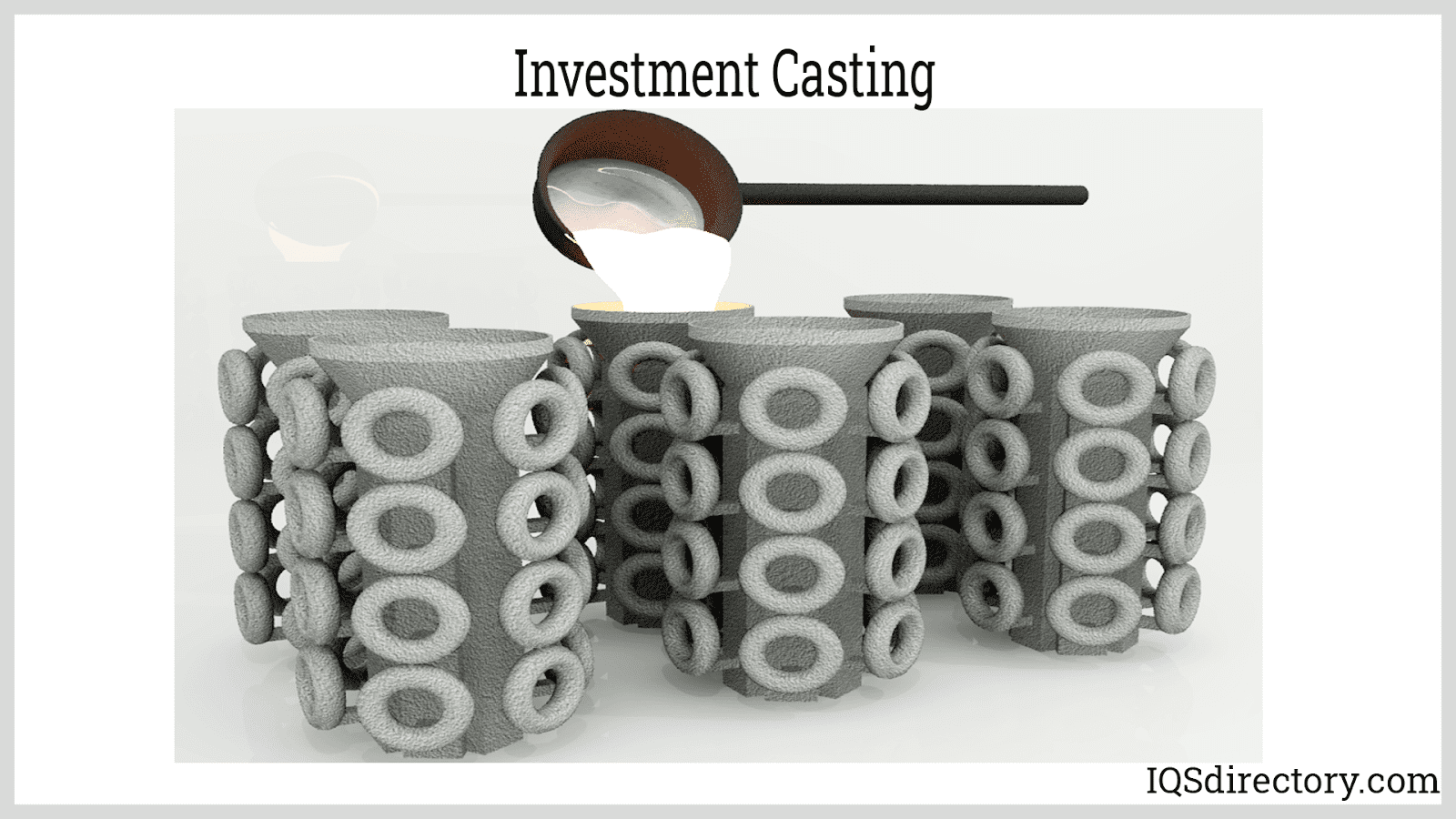Exploring aluminum casting and its vital role in industrial fabrication
The Influence of Cutting-edge Foundry Solutions on Lasting Production Practices
Cutting-edge foundry solutions play a necessary duty beforehand sustainable manufacturing methods. By integrating reusing innovations and energy-efficient processes, these solutions substantially reduce ecological influence. Foundries can reclaim important materials, consequently lowering reliance on virgin sources. As automation and lean production concepts get traction, manufacturing performance is maximized. The complete degree of these developments and their effects for the future of making continue to be to be discovered.
The Duty of Advanced Recycling Technologies in Foundries
Advanced reusing technologies are transforming the landscape of foundries by boosting material healing and decreasing waste. These innovative procedures allow shops to reclaim useful steels and products from scrap, decreasing reliance on virgin sources. By incorporating advanced sorting, shredding, and melting methods, factories can successfully remove useful materials from discarded items, thereby advertising a round economic climate.
These technologies support the manufacturing of top notch alloys and elements, making certain that recycled products meet stringent sector standards. Therefore, factories are not just enhancing their product effectiveness yet likewise lowering the ecological effect connected with standard manufacturing techniques
This shift in the direction of advanced recycling not just reinforces financial stability for factories yet additionally straightens with worldwide sustainability goals. Ultimately, the unification of these modern technologies stands for a substantial action ahead in the pursuit for lasting production techniques within the factory industry.
Energy Performance: Reducing Intake in Production Processes
Power effectiveness in producing procedures is crucial for sustainable procedures. Methods such as procedure optimization strategies, renewable resource integration, and waste warm recovery play necessary functions in reducing power intake. By concentrating on these locations, manufacturers can substantially lower their environmental influence while enhancing productivity.
Process Optimization Techniques
A considerable variety of making centers are increasingly adopting process optimization methods to boost power performance and lower intake. These strategies involve assessing and improving production process, determining bottlenecks, and implementing automation to enhance operations. By leveraging data analytics, suppliers can keep track of power use in real-time, enabling positive adjustments to minimize waste. Strategies such as Lean Manufacturing and 6 Sigma focus on eliminating inefficiencies and optimizing source appropriation. Additionally, advanced modern technologies like Net of Points (IoT) sensing units offer understandings into tools performance, assisting in anticipating upkeep that avoids energy loss. Generally, these procedure optimization techniques not only add to reduced energy consumption however likewise promote a society of continual improvement within making settings, straightening functional experiment sustainability objectives.
Renewable Resource Integration
Several manufacturing centers are progressively incorporating sustainable power sources to boost general power efficiency and minimize reliance on standard power grids. This change includes the fostering of solar, wind, and biomass energy, which can greatly decrease operational expenses and lower carbon footprints. By using these lasting energy resources, manufacturers not only minimize their environmental effect but additionally improve energy durability. On top of that, integrating eco-friendly power systems commonly involves sophisticated innovations such as energy storage space and smart grid solutions, which optimize power usage and promote real-time tracking. This combination supports suppliers in accomplishing regulative conformity and meeting sustainability goals while cultivating technology in manufacturing processes. Ultimately, renewable resource assimilation represents a crucial change towards even more sustainable manufacturing techniques and long-lasting practicality.
Waste Warm Recovery
Incorporating renewable resource resources establishes the phase for additional improvements in power performance, specifically via the execution of waste warm recovery systems. These systems catch excess thermal energy generated during manufacturing procedures, which would otherwise be lost to the atmosphere. By repurposing this heat, factories can substantially minimize their energy usage, lower operational costs, and minimize their carbon footprint. The recovered warmth can be made use of for different applications, such as heating, power generation, or pre-heating raw materials. Because of this, waste heat healing not just boosts energy effectiveness but also adds to a lasting manufacturing version. Innovative foundry services that prioritize this modern technology are paving the means for an environmentally accountable commercial landscape, aligning productivity with ecological stewardship.
Making Use Of Eco-Friendly Products in Foundry Workflow
As the demand for sustainable manufacturing practices grows, shops are progressively transforming to eco-friendly materials to enhance their operations. By incorporating sustainable choices, such as bio-based binders and recycled steels, factories can considerably lower their environmental impact. These materials typically require much less energy for handling and can reduce harmful discharges during production.
In addition, the adoption of eco-friendly materials not just aligns with governing requirements but likewise fulfills consumer preferences for greener items. Factories are exploring ingenious choices, such as utilizing natural ingredients that enhance mold quality while continuing to be safe.
The shift to sustainable products cultivates a circular economic climate by promoting source reuse and lessening waste. In addition, this modification can improve the general effectiveness of foundry operations, as environment-friendly products usually exhibit remarkable buildings, leading to enhanced product efficiency - Aluminum Foundry. Eventually, the application of environment-friendly materials represents an essential step towards sustainable manufacturing in the shop market

Technologies in Waste Management and Reduction Techniques
The change in the direction of green products in foundry procedures his response leads the way for innovations in waste monitoring and reduction techniques. Cutting-edge shop solutions are significantly embracing strategies that minimize waste generation and advertise recycling. Techniques such as closed-loop systems allow for the reuse of materials, substantially minimizing the volume of waste generated throughout manufacturing procedures. Furthermore, developments in filtration and splitting up innovations enable the reliable healing of valuable by-products, which can be rehabilitated into the manufacturing cycle.
In addition, the application of real-time surveillance systems offers data-driven insights right into waste generation patterns, helping with educated decision-making to optimize source use. Factories are also discovering biowaste remedies, converting organic waste right into energy or functional materials, further advertising sustainability. These technologies not just add to a round economic situation but likewise enhance the total ecological efficiency of factory operations, emphasizing the market's commitment to minimizing its environmental impact.
The Effect of Automation on Lasting Production
While many markets go for sustainability, automation emerges as a crucial element in improving sustainable manufacturing techniques within shops. By integrating automated systems, factories can accomplish higher effectiveness, minimize waste, and reduced power consumption. Automated processes permit accurate control over production specifications, lessening defects and revamp, which consequently saves resources.
In addition, automation facilitates the monitoring of environmental impacts, enabling real-time adjustments that straighten with sustainability objectives. Precision aluminum casting. Advanced robotics and synthetic intelligence can enhance product use, leading to considerable decreases in scrap and exhausts
In addition, automated technologies promote much safer working atmospheres by taking care of unsafe tasks, thereby improving worker wellness while ensuring compliance with environmental guidelines. Overall, the adoption of automation within factories not only enhances procedures but also plays an essential function beforehand sustainable production methods, adding to a much more liable industrial landscape.
Instance Studies: Successful Implementation of Lasting Factory Practices
Successful implementation of sustainable techniques in shops can be highlighted with different instance research studies that highlight innovative methods and measurable end results. One notable example is a mid-sized factory that adopted a closed-loop water recycling system, reducing water usage by 40% and lowering wastewater generation. Additionally, this facility changed to using green mold products, which not only better product high quality however also improved worker safety and security.
An additional considerable instance included a large factory integrating eco-friendly energy sources, such as photovoltaic panels, which balance out 30% of its energy requires. This effort not just reduced functional expenses yet likewise added to a significant decrease in carbon emissions.
A shop that executed lean production techniques reported a 25% boost in performance, leading to less material waste and optimized production procedures. These cases collectively highlight the tangible benefits and sustainability innovations attainable via innovative shop practices.
Frequently Asked Questions
Exactly How Do Cutting-edge Factory Solutions Contribute to Overall Sustainability Goals?
Cutting-edge shop solutions improve overall sustainability objectives by optimizing resource usage, minimizing waste, and boosting energy efficiency. These advancements add to lower carbon footprints and advertise eco accountable practices within the manufacturing field, sustaining wider sustainability initiatives.
What Are the Economic Benefits of Taking On Sustainable Foundry Practices?
Taking on sustainable shop methods can decrease operational costs, improve source performance, and enhance competitiveness. Furthermore, these methods can draw in eco-conscious customers and capitalists, eventually bring about increased productivity and long-lasting financial practicality for companies.
How Can Small Foundries Execute Sustainable Innovations Properly?
Tiny shops can carry out sustainable developments efficiently by adopting reference energy-efficient technologies, maximizing resource use, educating staff on lasting methods, collaborating with distributors for eco-friendly products, and participating in continual enhancement processes to minimize waste and emissions.
What Accreditations Exist for Sustainable Shop Workflow?

How Do Consumer Preferences Influence Sustainable Manufacturing in Foundries?
Customer choices greatly affect lasting production in foundries by driving demand for environment-friendly items. As customers focus on sustainability, shops adjust their techniques, including greener innovations and materials to meet market expectations and enhance their affordable benefit.
By repurposing this warm, factories can considerably reduce their power consumption, lower functional expenses, and lessen their carbon footprint. Foundries are additionally checking out biowaste options, converting organic waste right into energy or usable products, even more advertising sustainability. By incorporating automated systems, factories can achieve better performance, lower waste, and reduced energy consumption. Another Full Report substantial instance included a big foundry incorporating eco-friendly energy sources, such as solar panels, which balance out 30% of its energy requires. Innovative shop solutions improve overall sustainability goals by optimizing resource use, lowering waste, and enhancing energy performance.